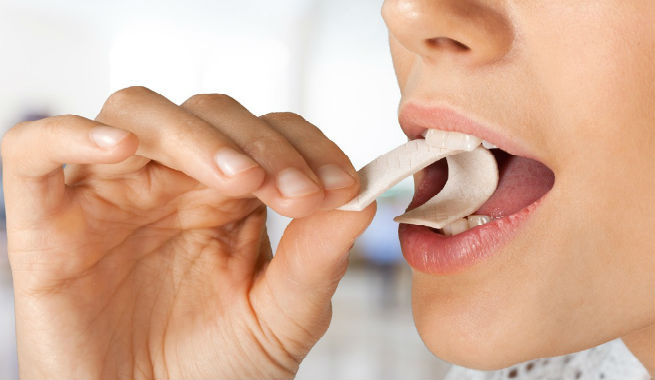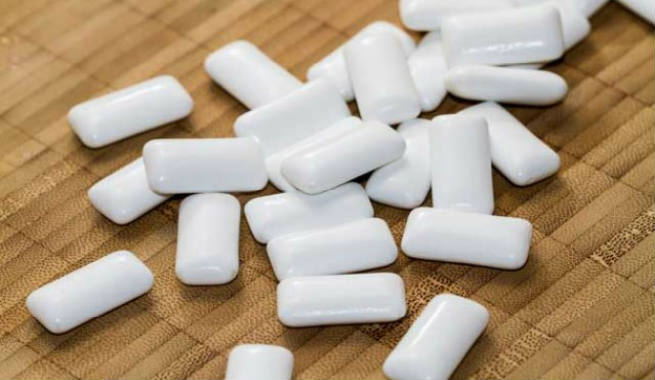So, your doctor has advised you to limit your sugar consumption, and your sweet tooth is coming your way. You are also trying to switch to some sugar alternatives or indulging in foods with artificial sweeteners, but oh! Most of them come with ‘sugar alcohols,’ something probably more dangerous than natural sugar, right? WRONG! Sugar alcohols are NOT ‘sugar in alcohols,’ which you might have been thinking about in past years. Let’s unlock the truth about sugar alcohols, their types, advantages, disadvantages, and above all, whether they are good or bad for you through this post: (1) (2)
About Sugar Alcohol
Although the name of this trendy sugar alternative is ‘sugar alcohol’ (polyol), it neither contains sugar nor alcohol. The substance is a carbohydrate (mainly ‘sweet’ carb) named after its unique molecular structure, a hybrid of sugar and alcohol molecules. It looks like the white crystals of table sugar and tastes alike but is digested or metabolized poorly in the body. While plain sugar comes with lots of calories and artificial sweeteners are free of them, sugar alcohols have considerably fewer calories than their regular counterparts. However, studies have proved they are safe for us and can positively impact our health.
Sources Of Sugar Alcohol
The natural sources of sugar alcohols are various berries, fruits, and vegetables. But they are mainly processed industrially from glucose, sucrose, and starches. Therefore, sugar alcohols can be found in commercially available food products (sugar-free and reduced-sugar) such as cookies, candies, ice creams, chocolates, protein bars, soda, chewing gums, baked items, desserts, fruit spreads, oral health products (toothpaste, mouth freshener, mouthwashes), OTC medications (cough syrup, chewable vitamins, throat lozenges), sports nutrition products (powders, supplements), and so on.
Different Types Of Sugar Alcohol
As said before, most of the food products with labels like ‘sugar-free’ or ‘no sugar added’ contain sugar alcohols, which can primarily be classified into the following types:
- Erythritol (0.2 calories/gram)
- Hydrogenated starch hydrolysates (3.0 calories/gram)
- Isomalt (2.0 calories/gram)
- Lactitol (2.0 calories/gram)
- Maltitol (2.1 calories/gram)
- Mannitol (1.6 calories/gram)
- Sorbitol (2.6 calories/gram)
- Xylitol (2.4 calories/gram)
While all of these are used as sweeteners, the details of the most commonly used ones are given below:
Erythritol:
It is the healthiest sugar alcohol, delicious, nearly free of calories (only 5%), non-laxative, and 70% sweeter than plain sugar. Much (almost 90%) of erythritol gets absorbed in the bloodstream and doesn’t affect the gastrointestinal system much. Moreover, it enhances our oral health significantly.
Maltitol:
Unlike erythritol, this sugar alcohol has a laxative effect, and it causes very mild digestive side effects due to poor absorption. However, maltitol is known to be 80% sweeter than sugar, with half (around 47%) of its calorie content. In addition, it promotes healthy gut bacteria, reduces insulin secretion, and improves oral health.
Xylitol:
The unique mint flavor of xylitol makes it different from all other sugar alcohols. It tastes as sweet as plain sugar, but the calorie content is almost 40% lower than that. Though xylitol is tolerated well by our body, it should be consumed in moderation to prevent gastrointestinal side effects.
Sorbitol:
Sorbitol tastes 60% sweeter than table sugar and holds 60% of its calorie content. Sugar alcohol is found to have the most minor effect on our blood sugar levels, but it can take a toll on our digestive system.
Why Sugar Alcohol Is Good For You?
Sugar alcohol, if used the right way, can bring a lot of health benefits to us. We tell you how:
- They contain fewer calories than regular sugar crystals. It essentially impacts the levels of glucose in our bloodstream in a less significant manner than other regular carbohydrates.
- They get absorbed in our body neither wholly nor readily. A certain percentage of each sugar alcohol passes into our bloodstream while the rest is excreted. Furthermore, the absorbed sugar alcohols use minimal amounts of insulin to produce energy—these help maintain normal blood sugar levels, which is essential for effective diabetes management.
- They have a very low Glycemic Index (GI), which prevents sudden spikes in blood glucose or insulin. It controls blood sugar levels and helps our body fight against metabolic syndrome.
- They make our oral health better instead of causing tooth decay as the bacteria inside our mouth cavity can’t make them fermented upon contact. Certain sugar alcohols like xylitol are even proven to inhibit the growth of oral bacteria.
While sugar alcohols are primarily associated with measurable health benefits, they should not be consumed in large amounts. It has been seen that excess intake of these sweet carbohydrates can lead to abdominal gas, bloating, flatulence, cramps, diarrhea, dehydration, fluctuation in blood glucose levels, etc.
Summary
Sugar alcohols are a trendy sugar alternative with fewer calories than regular sugar. Despite their name, they don’t contain alcohol or sugar. Types include erythritol, maltitol, xylitol, and sorbitol, each with distinct characteristics. Erythritol is the healthiest, while maltitol has a laxative effect. Sugar alcohols, sourced from fruits or processed from glucose, can be found in various products. They offer benefits like lower calorie content, minimal impact on blood glucose, and improved oral health, but they should be consumed in moderation to avoid digestive issues.



